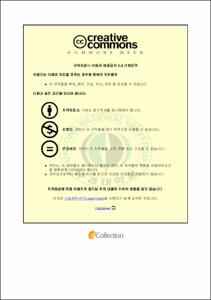해양관광지 브랜드개성 측정에 관한 연구
- Abstract
- Developing a Scale of Brand Personality for Marine Tourism Destination
Han, Kyung
Department of Business Administration
Graduate School of Pukyong National University
Abstract
The purpose of this study is to develop a Brand Personality Scale for Marine Tourism Destination.
In order to achieve this purpose, first, used factor analysis for J.Aaker's Brand Personality Scale which are well known for general product's brand personality scale and found the 24 scales are suitable for Marine Tourism Destination . Second, adopt three different Qualitative Research method such as FGI, Ethnographic Interview and ZMET( Zaltman's Methaphor Elicitation Technique) and try to find the additional personality scale which are suitable for Marine Tourism Destination and also are not described in J.Aaker's Brand Personality Scale and initially, 453 terms for Marine Tourism Destination's personality has been elicited and by processing 3 steps of different sorting method and also verifying the content validity, finally 12 scales were elicited from Qualitative studies
To verifying the Reliability and different Validity such as Convergent Validity and Discriminant Validity, tested with 394 samples in different regions(Seoul, Gyeonggi, Busan, Others) as well as Exploratory Factor Analysis for 36 scales which obtained from the results of Quantitative and Qualitative studies.
To verifying more accurate Validity, adopt the Confirmatory Factor Analysis and finally, 19 items were selected through measurement verification of goodness of fits to the data, indicating that =307.806, df=133(p=0.000), GFI=0.924, AGFI=0.892, NFI= 0.909, CFI=0.946, RMSEA=0.058 and again verifying the Convergent Validity and Discriminant Validity based on the standards which suggested by Fornell and Larker(1981) and Fornell et al (1982) with Andersen and Gerbing (1988).
This study shows somewhat different conclusion from J.Aaker's Brand Personality Scale and specially four factors are similar with J.Aaker's but one factor is quite different from J.Aaker's.
This study makes contribution to academic achievement of Marine Tourism Destination as well as practical Marine Tourism marketing in related with its development and also marketing strategy.
However, this study has some limitations as there are many unsolved issues of definition for Marine Tourism Destination and therefore, the results can be different depend on how define the Marine Tourism Destination and also there can be some bias to collecting and interpreting the Qualitative data due to unskilled Qualitative research methods.
To overcome these problems, continuous empirical research are required.
- Issued Date
- 2010
- Awarded Date
- 2010. 2
- Type
- Dissertation
- Publisher
- 부경대학교
- Department
- 대학원 경영학과
- Advisor
- 양위주
- Table Of Contents
- < 목 차 >
제 1 장 서 론
·························································
1
제 1 절 연구의 필요성 및 연구목적
·····························
1
제 2 절 연구의 방법 및 절차
·····································
3
제 2 장 이론적 배경
············································
4
제 1 절 브랜드개성
················································
4
제 2 절 해양관광지
················································
8
제 3 절 정성적 연구와 정량적 연구
·····························
9
제 3 장 연구 모형 및 연구방법
·····································
12
제 1 절 연구 모형
············································
12
제 2 절 연구 방법
············································
16
1. 기존의 브랜드 개성측정 척도 이용한 측정항목 도출
·····
16
2. 정성적 방법을 이용한 측정항목 도출
···············
16
3. 정량적, 정성적 방법의 통합적 분석
·························
20
4. 신뢰성, 타당성, 탐색적, 확인적 요인분석
················
23
제 4 장 실증연구
·····················································
25
제 1 절 기존의 브랜드 개성 측정 척도를
이용한 브랜드 개성 측정
····
25
제 2 절 정성적 연구방법(ZMET, Ethnographic Interview, FGI)
를 이용한 측정항목 도출
········
27
제 3 절 정량, 정성적 연구 결과 통합
···························
32
1. 신뢰성, 타당성 분석
··········································
33
2. 집중타당성과 판별타당성 검증
·······························
34
3 최종 측정 항목 확정
·········································
39
제 5 장 선행 연구결과와의 비교
·····································
40
제 6 장 결론 및 시사점
············································
45
제 1 절 연구결과의 요약 및 시사점
······························
45
1. 연구결과의 요약 및 논의
·····································
45
2. 이론 및 실무적 시사점
········································
46
제 2 절 연구의 한계 및 향후 연구방향
························
48
참 고 문 헌
·····························································
50
설 문 지
·································································
55
- Degree
- Master
- Files in This Item:
-
-
Download
 해양관광지 브랜드개성 측정에 관한 연구.pdf
기타 데이터 / 1.28 MB / Adobe PDF
해양관광지 브랜드개성 측정에 관한 연구.pdf
기타 데이터 / 1.28 MB / Adobe PDF
-
Items in Repository are protected by copyright, with all rights reserved, unless otherwise indicated.